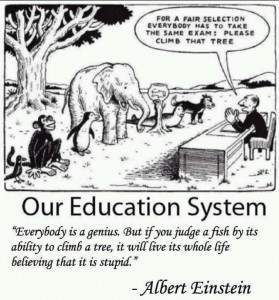 In educational evaluation the global educational reform movement (GERM) has privileged common indicators of student learning outcomes (used in turn for other evaluation purposes like teacher evaluation, even if not a sound practice). There are many reasons why standardized tests become the norm and are reified as the only fair and legitimate way to know how students and schools are doing. There is plenty of literature that debunks that idea.
In educational evaluation the global educational reform movement (GERM) has privileged common indicators of student learning outcomes (used in turn for other evaluation purposes like teacher evaluation, even if not a sound practice). There are many reasons why standardized tests become the norm and are reified as the only fair and legitimate way to know how students and schools are doing. There is plenty of literature that debunks that idea.
However, the narrative of standardized testing as a necessary and legitimate means of judging the quality of learning and schooling is powerful and political. In a short commentary for NPR a reporter, Anya Kamenetz, nicely summarizes reasonable alternatives, and these are excellent talking points when confronted with the question, “If not standardized tests, what then?” You can read the article, but in summary:
1) use some sort of matrix sampling (a good idea from NAEP)
2) consider ongoing embedded assessments (this is usually computer based testing)
3) think about what you want to know and it will require multiple measures (in other words, knowing scores in a few subject areas will never be enough, and maybe there are things worth knowing beyond the obvious)
4) start considering novel approaches to assessment, like game based assessment and the not so novel use of portfolios or narrative evaluations
5) think differently about what it means to judge a school and that means looking at more than just narrow student outcomes (school inspections are a notion worth revisiting).
 Follow
Follow
